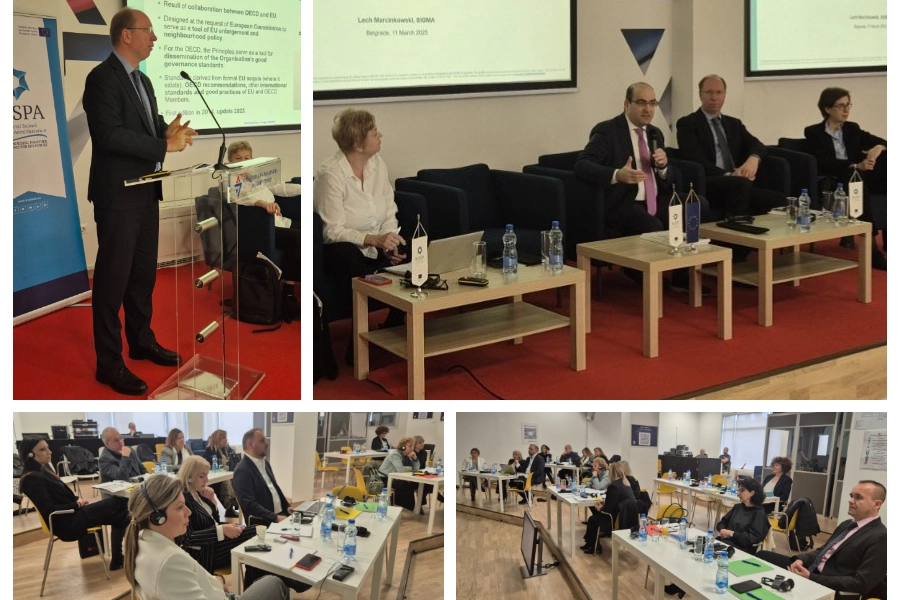
Workshop Highlights Urgency of Public Service Salary Reform in the Western Balkans
11–12 March 2025, Belgrade, Serbia
ReSPA and SIGMA convened a workshop bringing together senior civil servants responsible for human resource management, development, and salary system design to address the pressing challenges associated with public service salary systems across the Western Balkans.
Guided by SIGMA's latest research on civil service remuneration, the workshop provided critical insights into the complexities of salary management and best practices in the public sector. Particular emphasis was placed on the 2023 Principles of Public Administration, focusing on Principle 11, which underscores the importance of fair compensation in maintaining motivation and performance among public servants. SIGMA's 2024 regional monitoring assessment revealed that many regional administrations still struggle to comply with these principles, underscoring the urgent need for targeted reforms in civil service compensation systems.
Findings from ReSPA's staff satisfaction surveys further reinforced this urgency. Survey results indicated that salary management consistently received the lowest scores, with only 19% of public servants expressing satisfaction with their pay. Many reported that their salaries were insufficient to support their families, highlighting financial insecurity as a key factor affecting motivation, retention, and overall organizational performance.
The workshop featured key presentations and expert contributions, offering a comparative perspective on salary systems and reform approaches. Among the highlights were: Fadila Bahović, State Secretary at the Ministry of Justice, Public Administration, and Digital Transformation of Croatia, who led discussions on Croatia's public wage system reform, Peter Pogačar, Director General at the Ministry of Public Administration of Slovenia, who shared insights into Slovenia’s salary system and its reform process, SIGMA experts Peter Vagi, Lech Marcinowski and Blanca Lázaro, who presented assessment results for Principle 11, providing a regional perspective on challenges and compliance gaps. A methodological approach to salary system reform, presented by SIGMA, outlining best practices for designing and implementing reforms effectively.
The event also provided a platform for structured analysis and discussion on salary schemes across the Western Balkans, with each administration presenting its remuneration system.
Additionally, the workshop covered the five key pillars of salary system design, exploring concepts such as centralized vs. decentralized systems, job-based vs. individual-based systems, pay grade structures, job classification, and comparisons with the private sector and salary components, including base salary, pay supplements, and performance-related pay.
Participants engaged in group work aimed at designing tailored reform proposals. They applied the presented concepts to their national contexts, identifying strategies for fair, competitive, and sustainable civil service compensation models.
Ranka Bartula Mušikić, ReSPA Programme Manager, concluded the event: "By fostering knowledge exchange and regional dialogue, this workshop marked a crucial step toward improving public service salary systems in the Western Balkans. The discussions and proposed reforms set a strong foundation for future public administration improvements, ensuring fair compensation structures that enhance motivation and efficiency across the Western Balkans. ReSPA will continue to work in this direction."



